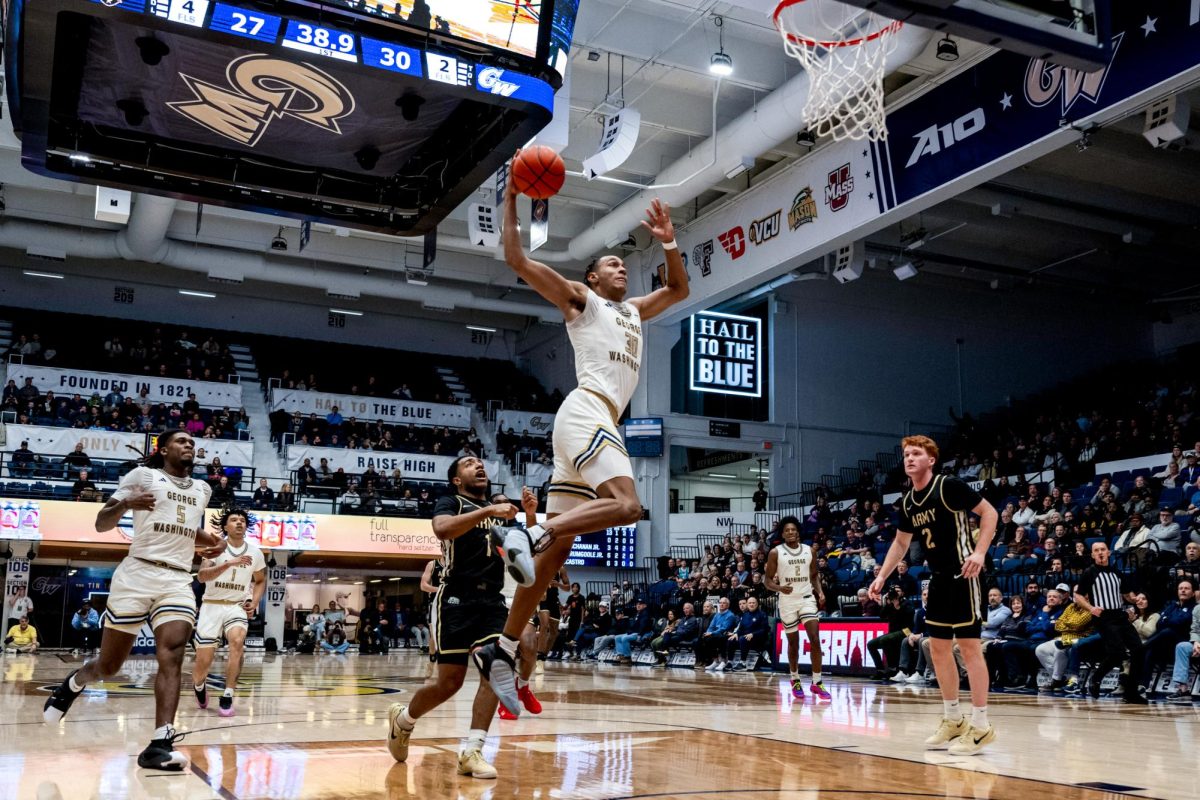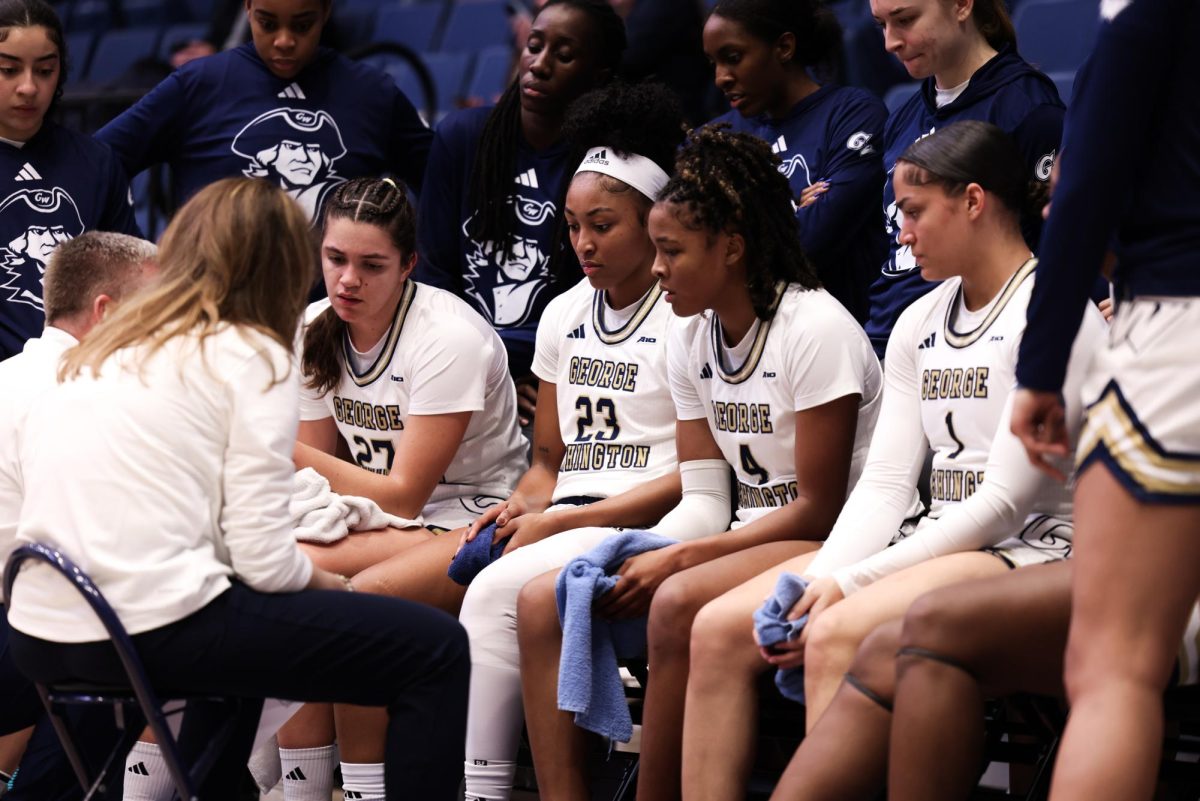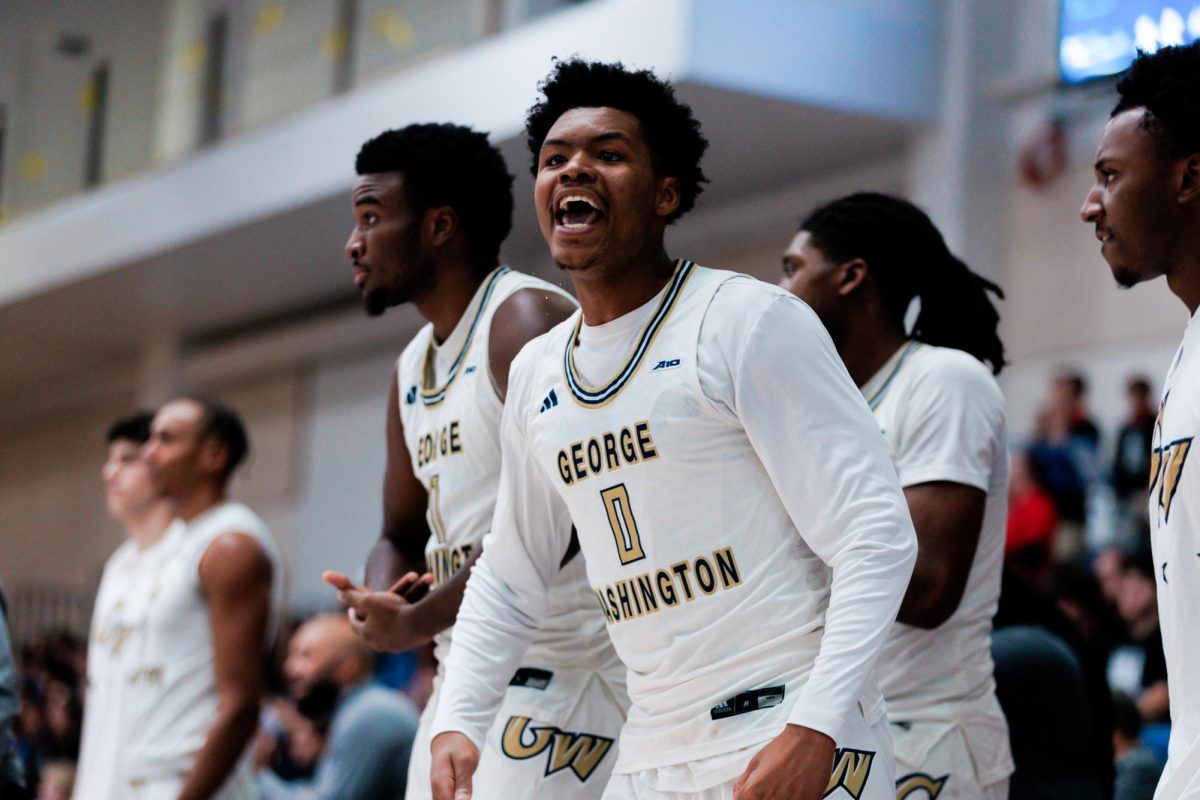SirValiant Brown has said it was necessary for him to toss up 25 or 30 shots a game freshman year. He said offense on the GW men’s basketball team was structured around his scoring. Brown spent two seasons at GW – and during his first season that approach worked wonders for him. He led the nation in scoring for much of the 1999-2000 season.
His performance that year earned him a rookie of the year award from the Atlantic 10 and an honorable mention on the Associated Press All-America team. He was one-10th of point from being the only freshman to ever lead the NCAA in scoring at 24.6 points a game. It wasn’t long before people were contemplating Brown’s ability to compete in the National Basketball Association.
But his shaky sophomore season, which saw his scoring average dip about five points a game, may make teams wary about Brown’s ability to compete in the NBA, which will hold its draft at Madison Square Garden Wednesday night.
At 6-foot-1 and 176 pounds, he is a natural point guard. He spent his time at GW as a shooting guard. At any level beyond college Brown will have to assume his natural position, which could prove an easy transition. At the Moody Bible Institute in Chicago, the site of a pre-draft camp June 5-10, Brown proved himself a capable point guard averaging a surprising 10 points and eight assists a game.
The question has never been whether Brown would go for the NBA, or if he doubted his own ability. Jumping out after his sophomore season may have been a statement of rugged self-confidence, or it may simply have been the right time to go. Brown made his decision soon after head coach Tom Penders resigned from the team.
There is no question that it has been SirVal’s dream to play in the NBA. Will it remain just a dream? It has been for former GW athletes.
Yinka Dare, a 7-foot-1 center from Nigeria, was selected 14th overall in the 1994 draft by the New Jersey Nets. He is GW’s only player in recent years to compete in the NBA, and he hasn’t had much success.
Dare, who left for the NBA after his sophomore season like Brown, has become an undeveloped and disappointing player. Dare played himself out of the league after short stints with the Nets, the Orlando Magic and, most recently, the Golden State Warriors.
In 1999 Shawnta Rogers and Yegor Mescheriakov entered the NBA Draft. Both were viable candidates but went unselected. Rogers was perhaps GW’s most beloved guard as he cut through opponents at only 5-foot-4 and hit a memorable game-winning three-pointer to beat Xavier at home, which won the A-10 West. Rogers last played with the Baltimore Bayrunners in the International Basketball League. Mescheriakov, a 6-foot-8 small forward who averaged 14 points a game and led the Colonials in rebounding his senior year, plays in Turkey.
More criticism surrounding Brown involved his inability to select better shots. Would he be able to improve that in the NBA? He managed to cut down the number of shots from 22 to 15 by his sophomore season, but was connecting on less of them (37 percent).
What critics see as an undeveloped player who could not control his shooting, others will see as raw talent waiting for the right system. Brown has scored big-number games and has post-season experience, but did not leave GW with any major high-pressure experience.
An NBA team that picks Brown will show it is willing to capitalize on raw talent and take the time to develop him. A team may deem Brown a valuable asset for his ability to shadow teammates in practice.
Brown does not have an agent and has up to 30 days from June 27 to return to GW if he is not selected – something he said he does not plan to do.






